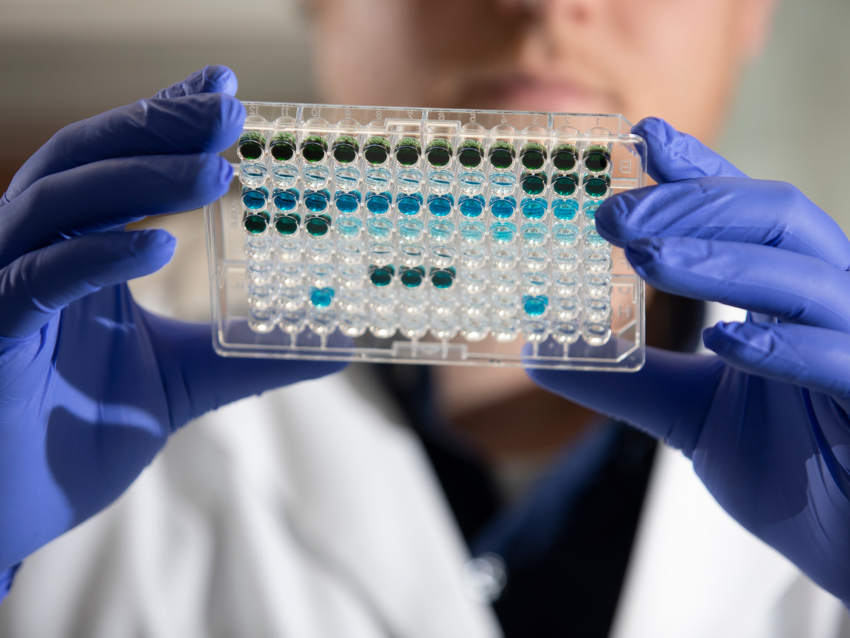Vincent Venditto, an assistant professor at UKCOP, also lends his expertise in large scale antibody screening to the team. “Proteins produced by the immune system (called antibodies) help us determine if a person is infected. Regardless of symptoms, your immune system will produce antibodies to help fight this virus. By detecting COVID-19 antibodies using a blood test, we can more accurately determine who is, or has been, infected and who has not,” says Venditto.
The College hopes to establish blood collection locations, potentially in pharmacies across Kentucky, to test communities that do not have access to the necessary infrastructure for adequate population screening of COVID-19. Venditto says this assay offers the potential to test hundreds of Kentuckian healthcare workers and residents each day.

